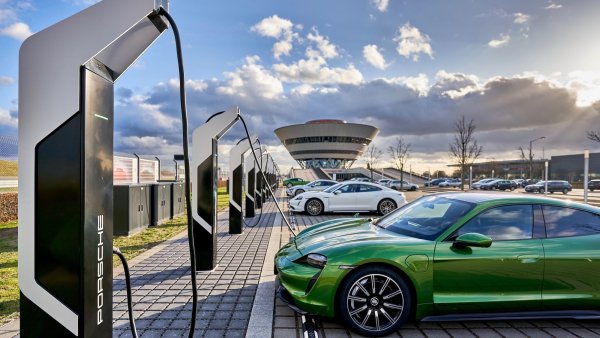Porsche Confirms It's Building Its Own EV Charging Stations

With Taycan deliveries more than doubled in 2021, Porsche is preparing to push its electrification strategy further by introducing more EVs into its lineup. The all-electric Macan is already underway while just recently, the automaker has confirmed the arrival of a battery-powered 718 sports car by 2025.
In its annual report, Porsche CEO Oliver Blume said that more than 80 percent of the company's sales would be EVs by 2030. To support this, Blume confirmed that Porsche will be building its own charging infrastructure, which will go side-by-side with the current partnerships with third-party charging networks.
Currently, Tesla is the only major automaker that owns and operates its own DC fast-charging infrastructure network called the Supercharger. Other existing car brands that sell their own EVs partner with third-party charging companies like Ionity in Europe, Electrify Canada in Canada, and Electrify America in the US. With the exception of Tesla's and a few notables, most public charging ports in the US are still Level 2.
Whether Porsche will be building its proprietary DC fast-charging network is still undefined at this point, but it's clear that the EV offensive will be both for third-party companies and the company's own future network.
Apart from the charging stations, Porsche has previously announced the foundation of the Cellforce Group. The newly formed company is in charge of developing and producing high-performance battery cells for the automaker. The production will start by 2024, with an initial capacity of at least 100 MWh annually, or around 100 kWh per vehicle.
Porsche's push for electrification is certainly ambitious, much like its parent company Volkswagen. As to how this EV technology will be shared between the two, that's still to transpire, especially in high-performance applications.
Related News
